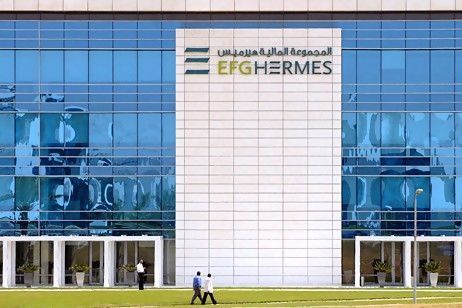
In early 2012, Qatar-based QInvest offered EFG Hermes $250 million in return for 60 percent of most of its operations, with the company name changed to EFG Hermes Qatar. Within weeks, a rival investor appeared. Planet IB, which claimed to have backing from wealthy businessmen including telecoms billionaire Naguib Sawaris, offered to pay $1 billion for 100 percent of the company’s equity.
The company brushed off this attempted hostile takeover, saying that it was unclear who the investors in Planet IB were or what funds they held. Naguib Sawaris failed to confirm his interest in the company and the deal evaporated, leaving QInvest as the sole bidder.
This was all very exciting for Egyptian market watchers, who had never experienced a hostile takeover before. It also held the interest of commentators in the region, who had grown accustomed to EFG Hermes playing a dominant role in investment banking over many years.
Founded in 1984, the Egyptian Financial Group (EFG) was the first investment banking firm in Egypt and was, for many years, closely associated with the country’s government, creating and analysing privatisation plans. Nine years after EFG’s formation, in 1993, former Commercial International Bank executive, Yasser El-Mallawany,created Hermes and became general manager of the Corporate Banking division.
Initially, EFG and Hermes competed for the same custom, bringing securities brokerage to Egypt, based on their executives’ experiences on Wall Street in the United States. They followed up with corporate finance, sales and trading and asset management, taking lead roles in several Initial Public Offerings (IPOs) in the mid-1990s in Egypt, as the country’s markets liberalised.
By 1996, the logic of a merger became clear and the two companies formed EFG Hermes, helping them to offer a wider range of services and to expand to neighbouring markets.
A series of merger and acquisitions deals in the following years helped the company to grow quickly, assisted by the arrival of Hassan Heikal shortly before the merger of the two companies.
Heikal previously worked in the Corporate Finance Division of Goldman Sachs on Wall Street and has led EFG Hermes’s expansion into new markets. He won commissions from a wide range of multinational clients, including Vodafone, Heineken, PepsiCo, Pirelli and Bayer, as well as large Egyptian clients such as Orascom.
With its headquarters in Egypt and a presence in several North African countries, EFG Hermes certainly has the potential for further expansion in Africa and has the ambition to pursue this path. In 2011, it was named African Investment Bank of the Year at the annual African Banker awards held in Washington DC – the first Egyptian-based bank (and the first bank from an Arab country) to win the award.
The company has also played pivotal roles in large deals in Africa, including the $450 million acquisition by Japan Tobacco of Sudanese tobacco firm, Haggar, which controls 80 percent of the country’s cigarette market, and the $1.2-billion takeover by Qatar Telecom of North African telecoms company, Tunisiana.
In recent months, however, EFG’s regional aspirations in the Gulf have taken priority over its African plans. The battle between Planet IB and QInvest demonstrated the potentially rich rewards at stake for a company that can win the majority of investment banking in the Middle East, as the region diversifies away from purely hydrocarbon investment and attempts to make longer-term investment plans.
EFG Hermes is itself part-owned by the Dubai Investment Group (with an 18.5 percent stake) and the Abu Dhabi Financial Authority (9.8 percent), so it functions as a quasi-sovereign wealth fund. There are strong reasons for the Dubai and Abu Dhabi authorities to prefer a bidder from their own locality (Qatar), versus an Egyptian bid, which could lessen their influence, if not remove them altogether. (Planet IB does, in fact, have some Arab backing, including Sheikh Tariq bin Faisal al-Qassimi, a cousin of the ruler of Sharjah).
When it came to a vote, on 16 September 2012, the company’s shareholders decided, by an overwhelming majority of 86.9 percent, to approve the “strategic alliance” of QInvest. “This transaction will net Egypt $250 million in foreign investment while setting the Arab world’s leading investment bank on course to expand into Africa and Asia,” the company said.
A new legal entity – EFG Hermes Qatar – will be created, 60 percent owned by QInvest and 40 percent by EFG Hermes, offering a full range of investment banking services, securities brokerage, asset management, research and infrastructure funding activities.
Mona Zulficar, EFG Hermes chairperson, said that Shareholders have given resounding approval to the Board of Directors’ vision of creating the definitive investment bank in the Arab world, a platform from which EFG Hermes will grow to comprehensively cover the Middle East, Africa, Turkey, and south and southeast Asia.
Commentators have noted that EFG Hermes is in a tricky situation, with its net income (as of early 2012) only a fifth of its 2008 levels, and its share price down 60 percent since the start of the Egyptian uprising. “EFG Hermes investors have spotted a way out of their predicament,” the London Financial Times reported. “The bank’s model is right, the Qataris will help it to achieve its potential.”
Until the Egyptian political situation calms and investors can gain proper clarity about the future direction of the country and the legal security of their investments, EFG Hermes’ position is likely to remain precarious. But once stability returns, the prospects for the company in its own locality, in the Middle East, Africa and Asia, should brighten considerably.
African Venture


